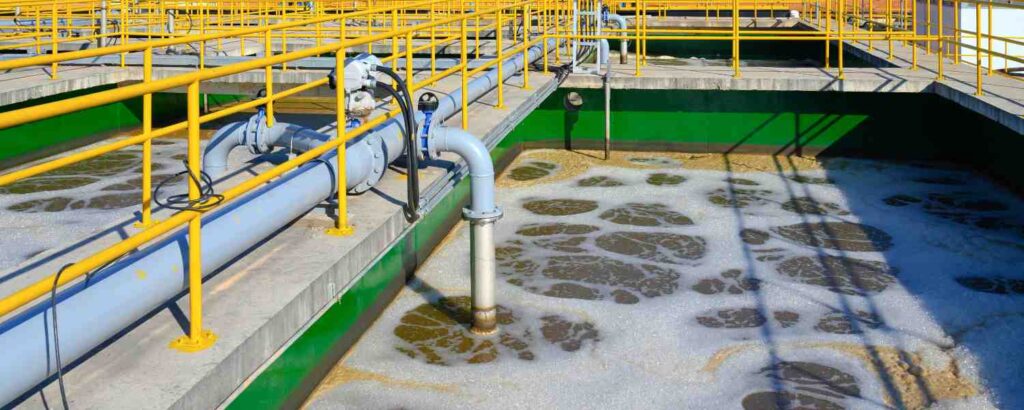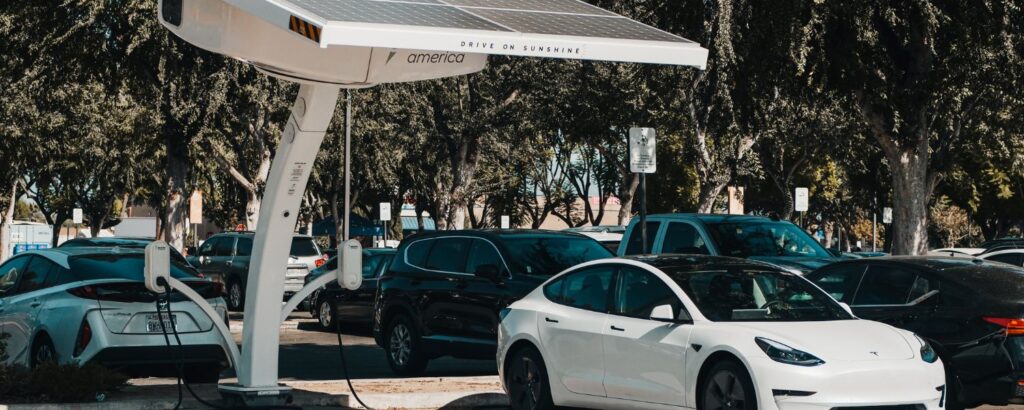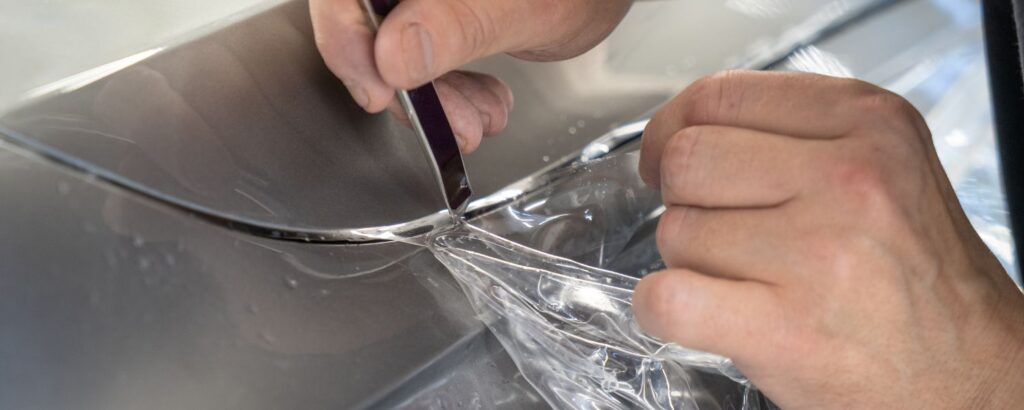With the growing concerns about environmental sustainability and the need for responsible consumption, the automotive industry is experiencing a significant shift towards eco-friendly practices. One such area that is gaining momentum is car cleaning.
Traditional car wash methods, which involve copious amounts of water and harmful chemicals, are replaced by eco-friendly car wash techniques. This article explores why eco-friendly car wash is the future of car cleaning and highlights its numerous benefits.
Water Conservation
Water conservation is a crucial component of eco-friendly car wash practices. Traditional car wash methods often involve excessive water usage, leading to the wastage of this valuable resource.
Eco-friendly car wash techniques, on the other hand, prioritize water conservation in several ways:
1. Waterless Car Washing

Waterless car washing is popular in eco-friendly car washes. It involves using specialized biodegradable products and advanced cleaning agents that do not require rinsing with water.
These products are applied directly to the vehicle’s surface and remove dirt and grime without excessive water usage. The eco-friendly waterless car wash can save significant water per wash, contributing to conservation efforts. The International Carwash Association estimates that if every car owner in the United States used a waterless car wash once a year, it would save 8.7 billion gallons of water.
2. High-Pressure, Low-Volume Systems

Eco-friendly car wash facilities utilize high-pressure, low-volume systems that optimize water usage. These systems deliver water at higher pressures, allowing for efficient cleaning while minimizing the volume of water required.
By utilizing technology that maximizes the cleaning power of water without wasting it, eco-friendly car washes achieve significant water savings.
3. Water Recycling and Filtration

Many eco-friendly car wash facilities employ water recycling and filtration systems. These systems capture and treat the wash water, removing contaminants such as dirt, oil, and chemicals.
The filtered water can be reused for subsequent washes, reducing the need for freshwater intake. By implementing water recycling systems, eco-friendly car washes conserve water and prevent pollution by effectively treating and reusing the water.
4. Education and Awareness

Eco-friendly car washes often prioritize educating their customers about the importance of water conservation. Raising awareness and promoting responsible water usage encourages car owners to make conscious choices when it comes to car cleaning.
Simple practices like using buckets instead of hoses, turning off the running tap when it is not in use, and avoiding excessive water runoff can make a significant difference in conserving water.
Reduction in Chemical Usage
Reducing chemical usage is vital to eco-friendly car wash practices, as it helps minimize environmental pollution and promotes a healthier and safer cleaning process.
Here’s how eco-friendly car wash facilities achieve a reduction in chemical usage:
1. Biodegradable and Non-Toxic Cleaning Agents

Eco-friendly car washes prioritize using biodegradable and non-toxic cleaning agents. These eco-friendly car wash products are formulated to be environmentally friendly, breaking down naturally without leaving behind harmful residues.
Eco-friendly car washes to ensure that the chemicals applied to vehicles during the cleaning process do not contribute to water pollution or harm ecosystems. Conventional car washes can discharge up to 100 gallons (378 liters) of chemical-laden wastewater per vehicle, which can contaminate water bodies and harm aquatic life. (Source: WaterSmart Environmental, Inc.)
2. Steam Cleaning

It is a popular method employed by eco-friendly car washes to minimize chemical usage. High-pressure steam, combined with microfiber cloths or brushes, effectively removes dirt, grime, and stains without harsh chemical detergents.
Steam cleaning reduces chemical usage and sanitizes the vehicle’s surfaces, killing bacteria and allergens.
3. Targeted Spot Cleaning

Eco-friendly car washes focus on targeted spot cleaning, where chemicals are applied only to specific areas that require intensive cleaning.
By avoiding the unnecessary application of chemicals to the entire vehicle, they minimize cleaning agents’ overall usage and waste.
4. PH Neutral Products

Eco-friendly car washes often use pH-neutral cleaning products. These products are gentle on the vehicle’s surfaces while removing dirt and contaminants.
PH-neutral products reduce the risk of paint damage or corrosion, ensuring the vehicle remains in good condition while minimizing the need for harsh chemicals.
Energy Efficiency
Energy efficiency is a key aspect of eco-friendly car wash practices, aiming to minimize energy consumption and reduce the carbon footprint associated with car cleaning.
Here’s how energy efficiency is implemented in eco-friendly car wash facilities:
1. Efficient Equipment

Eco-friendly car washes prioritize using energy-efficient equipment and technologies. They invest in advanced cleaning systems designed to optimize energy usage without compromising performance.
For example, efficient water pumps and motors minimize energy wastage during cleaning. Additionally, LED lighting fixtures are employed, which consume less electricity compared to traditional lighting options. LED lighting, commonly used in eco-friendly car wash facilities, consumes approximately 75% less energy than traditional lighting options, according to the U.S. Department of Energy.
2. Solar Power

Many eco-friendly car wash facilities embrace solar power as a renewable energy source. Installing solar panels on their premises generates clean and sustainable energy to power their operations.
Solar energy is used to operate various car wash components, including lighting, pumps, and other electrical equipment. This reduces reliance on conventional energy sources and helps to mitigate greenhouse gas emissions.
3. Energy Management Systems

Eco-friendly car washes employ energy management systems to monitor and optimize energy usage.
These systems track energy consumption patterns, identify high-usage areas, and provide insights for implementing energy-saving measures. By effectively managing energy resources, car wash facilities can minimize waste and maximize efficiency.
4. Timers and Sensors

To enhance the energy efficiency, eco-friendly car washes often utilize timers and sensors. Timers are set to control the duration of equipment operation, ensuring that they are only active when needed.
Sensors are generally used to detect the presence of a vehicle, activating the necessary cleaning processes and deactivating them when the vehicle leaves. This prevents unnecessary energy consumption and ensures that resources are utilized efficiently.
5. Preventing Water Pollution

The runoff from traditional car washes contains a cocktail of pollutants, including oil, grease, heavy metals, and chemical residues. When this contaminated water enters storm drains, it eventually reaches rivers, lakes, and other water bodies, posing a threat to aquatic ecosystems.
Eco-friendly car wash techniques minimize water pollution by using biodegradable products that are not harmful to the environment. Furthermore, specialized filtration systems can capture and treat the wash water, removing contaminants before it is released into the environment.
By preventing water pollution, eco-friendly car washes contribute to the preservation of water quality and the health of aquatic life.
6. Protecting Vehicle Surfaces

In addition to being environmentally friendly, eco-friendly car wash methods are gentle on vehicle surfaces. Traditional car washes often use abrasive brushes and harsh cleaning chemicals that can cause scratches, swirl marks, and damage to the paintwork.
Eco-friendly alternatives employ innovative cleaning technologies, such as foam cannons and microfiber cloths, designed to lift dirt and grime gently without harming the vehicle’s finish. Eco-friendly car washes maintain the appearance and value of vehicles while ensuring responsible cleaning practices.
7. Consumer Health and Safety

The chemicals used in traditional car washes can pose health risks to car owners and employees. Many of these chemicals release volatile organic compounds (VOCs) into the air, leading to air pollution and potential respiratory problems.
Eco-friendly car wash products are formulated to be non-toxic and free from harmful VOCs, protecting the environment and human health. This aspect is particularly important for car wash employees exposed to these substances regularly. By embracing eco-friendly car wash practices, we prioritize the well-being of both consumers and workers.
Conclusion
As the world continues to emphasize environmental sustainability, the future of car cleaning lies in eco-friendly car wash practices. By conserving water, reducing chemical usage, promoting energy efficiency, preventing water pollution, protecting vehicle surfaces, and prioritizing consumer health and safety, eco-friendly car wash techniques offer a responsible and sustainable approach to car cleaning.
The adoption of these practices will not only contribute to a greener and more sustainable future but also enhance the longevity and appearance of vehicles. Eco-friendly car wash is the way forward in the automotive industry, aligning with our collective efforts to protect the planet for future generations.

